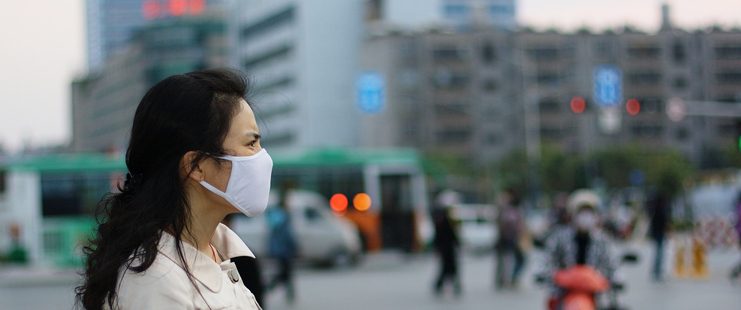Our Opinion: 2020
Pandemic fears continue to panic markets

Stocks around the world have fallen for a fifth day amid growing concern about the coronavirus outbreak. In London, the FTSE 100 fell 1.1% in early trading, mirroring similar falls on other European markets, before recovering slightly.
In Asia, Japan’s Nikkei 225 index lost 0.8% and the Hang Seng in Hong Kong fell 0.7%. It comes as big firms warn they could see sharp losses while the virus continues to spread.
Share markets have faced days of turmoil, with the FTSE 100 hitting a 12-month low on Tuesday and the main US indexes losing more than 3% overnight.
Recent falls were spurred by the announcement by the US Centres for Disease Control and Prevention (CDC) that it expects the virus to spread in the US and that “disruption to everyday life might be severe.” Additionally, the World Health Organization (WHO) also advised countries to be prepared to fight the virus aggressively head-on, and US administration officials told senators that a vaccine was at least 12 to 18 months away.
The number of cases globally has continued to increase, with at least 38 countries confirming infections. The first case in Switzerland was reported, along with two people in Austria. All three had connections to Italy, highlighting the potential for the virus to spread across Europe, where additional cases were also reported in France and Spain.
Emerging market equities performed relatively better, and the demand for safe-haven assets has, predictably, grown.
What to expect next?
Given the incubation period of the virus, the next two weeks will be critical in determining the extent of the outbreak, the steps authorities are willing and able to take to contain it, and the economic effect of those measures.
The CDC announcement, while a negative market catalyst, also stated that the virus is not currently spreading in the US. The proactive measures taken by US and European officials, the ample public forewarning of the risks, and the ability to identify links between cases and keep them contained should limit spread in these regions, although it likely won’t prevent more infections before the spread starts to abate.
Should the number of cases ex-China continue to increase exponentially, triggering aggressive containment measures, the shutdown of economic activity for even only a couple of weeks would have a material impact on growth. But such aggressive measures would likely be confined to specific regions or segments of the economy. Additionally, over time, greater understanding of the effects of the virus may reduce the risk that governments, consumers, and businesses react disproportionately to its threat.
In spite of increased uncertainty in developed markets, there are encouraging signs that China is succeeding in containing the outbreak there. The number of new cases in China ex-Hubei is now at very low levels, which should allow economic activity to normalize and supply chain disruption to begin to resolve itself, in line with our base case.
What does this mean for investors?
As with any sudden sell-off, it is important for investors to maintain a long-term perspective—US stocks are down sharply but only back to levels seen in December—and to manage risks through asset class and global diversification. During periods of volatility, investors should also continue to monitor portfolio allocations to see if rebalancing is necessary to remain in line with target weights.
The divergence we are now seeing between developed and emerging market equity performance is indicative of China’s relative success in containing the outbreak, and of the increased uncertainty facing developed markets. We expect this divergence to continue.
There are some strategies that can help investors improve the risk-reward profile of portfolios during this period of uncertainty.
Firstly, investors should consider increasing exposure to emerging market stocks over those in the Euro- zone. Recent dips in Asian markets provide an attractive longer-term entry point. This positioning is predicated on the opinion that China succeeds in containing the outbreak there in the coming weeks, allowing supply chain disruptions to resolve, consumer confidence to revive, and the economic and market impact from COVID-19 to be confined to the first quarter of the year. Assuming this is the case, earnings growth of near 12% is likely in Asia (ex-Japan) this year. Valuations look reasonable, at a near 35% discount to global peers.
Secondly, avoid sectors exposed to travel. Investors should avoid the most vulnerable sectors, including airlines and hotels, and invest in “stay at home” stocks – in sectors like e-commerce, gaming, and food delivery. You would expect to see increased demand in these areas in the case of quarantine measures. Also, sustainable dividend stocks will become increasingly attractive, as they could be seen as relative safe havens, particularly given the sharp fall in bond yields.
26th February 2020
